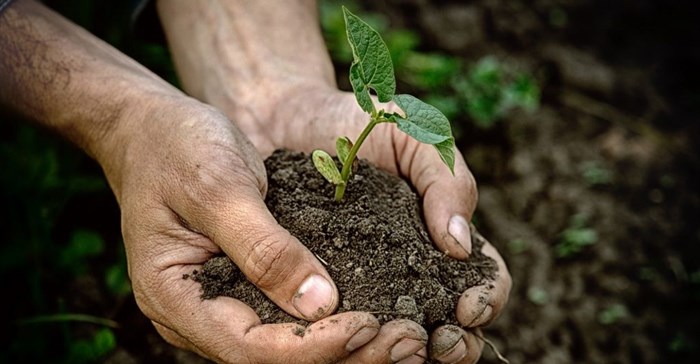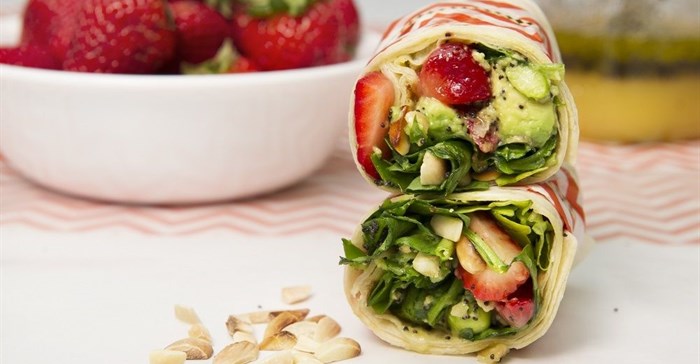
Image Supplied
One easy, fun and delicious way for anyone to participate is to enjoy plant-based foods. Green Monday is a global movement that encourages South Africans to make a positive difference to the environment – one meal at a time. Replacing meat, eggs, and dairy with plant-based foods such as nuts, grains, beans, legumes, and vegetables, even just one day a week, can make a tremendous difference, especially as we face water restrictions, shortages of arable land and the threats of climate change.
The price of animal products
We raise more than one billion land animals for food every year in South Africa and research indicates those numbers continue to grow. In just ten years, for instance, pork intake increased 77 percent and poultry intake rose 63 percent. We are also consuming more beef, eggs, and dairy. All of this comes at a price, as raising animals for food contributes to climate change, deforestation, water pollution and water shortages:
1. Climate-changing gases like carbon dioxide, methane and nitrous oxide are released into the atmosphere at nearly every stage of meat, egg, and milk production. These gases contribute to global warming, increasing probabilities for severe weather events and harm the atmosphere and oceans. In South Africa, animal agriculture accounts for 60 percent of total agricultural carbon dioxide.
2. More than half of all land in South Africa is used to raise farm animals, a process which severely degrades the land and damages plant and animal species. Substantial amounts of farm land are also used to grow feed for farm animals.
3. Animal manure from factory farms and chemicals used to grow animal feed pollute our water.
4. Producing meat, milk, and eggs require huge amounts of water, whether for growing feed, cleaning housing enclosures, hydrating the animals, disposing of their waste or disinfecting slaughtering equipment. Amazingly, it takes over 4,000 liters of water to produce a kilogramme of chicken meat, significantly more than needed to produce almost every other plant-based food.
According to Leozette Roode, farm animal campaign manager for HSI (Humane Society International) Africa: “It has never been more important for South Africans to save our precious natural resources, and with the death-threatening droughts we are experiencing, the focus is on water conservation. Humane Society International, Africa asks that you consider replacing animal products with plant-based foods every Green Monday in order to help us conserve and protect South Africa’s precious water supply.”
The benefits of a greener diet

Strawberry and spinach wraps
Other benefits come from a greener diet. Numerous studies indicate that a diet rich in plant-based foods can help improve your health. In South Africa, nearly 30 percent of men and 56 percent of women are either overweight or obese. Studies show that people who eat fewer animal products and more plant-based foods have lower rates of obesity, high blood pressure, diabetes, arthritis, and cancer.
Replacing meat, milk and eggs also benefit farm animals in South Africa, millions of whom spend their entire lives in cages or crates, where they are unable to exercise, engage in their natural behaviours, and often cannot even turn around because of lack of space.
“It is really easy to replace animal products in our meals with delicious and healthy plant-based alternatives,” according to Roode. “Simply use nut milk instead of dairy milk and add pulses like lentil and beans to your soups and stews for protein. Meaty vegetables like mushrooms are great in pasta and soaked cashews make the creamiest sauces. There are also a variety of meat alternative brands available in South Africa to replace braai favourites like patties, schnitzels, nuggets and sausages.”
Since the launch of HSI's Green Monday campaign in South Africa, not only have thousands of individuals begun to enjoy more plant-based foods every Monday, but also South African restaurants, food brands, government departments, and other leaders of the industry have also enthusiastically joined the initiative. All of these efforts are helping to create a more environmentally sustainable South Africa. This year, World Environment Day happens to fall on a Monday, so make it a Green Monday.
For more information and healthy green recipes, visit Green Monday. Join the conversation on Facebook and on Twitter with the hashtag #GreenMondaySA.





































